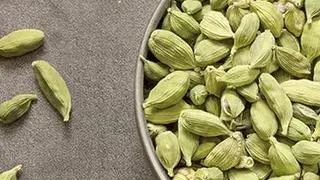Pakistan’s registration of its basmati rice as a Geographical Indication (GI) in its own country will not affect India’s exports of the aromatic cereal but there is a possibility it may have to share the GI tag for basmati with Islamabad in the European Union, an official said.
“Pakistan was caught napping when India’s application to the EU for a GI tag for its basmati was published by the bloc in September 2020. Islamabad objected and claimed that it too deserved the tag for its basmati rice but the fact was that it had not done its basic homework of getting a GI registration within the country itself,” the official tracking the matter told BusinessLine .
The official added, “Now, Pakistan’s basmati rice has finally got a GI registration within the country. There is possibility that the EU may consider granting the GI registration for basmati to the two countries together.”
The official said that both Pakistan and India had been exporting basmati to the EU without a GI tag from the bloc so far but formal recognition could give a boost to business.
What is a GI tag?
A GI is a tag on products that have a specific geographical origin and possess certain qualities attributed to that origin. The recognition prevents others using similar items, but not of the same geographical origin, from using the tag giving exclusivity to the product with the GI.
India is ahead in the race for GI tag from the EU as it already had long winding discussions with EU officials on the same, including the areas of cultivation that fall under basmati and the GIs on EU products that India should recognise, the official added. But if the EU decides to move on India and Pakistan’s request for GI recognition for basmati by the bloc together, then New Delhi would need to wait.
“The waiting however will not affect India’s exports as it has been successfully exporting basmati to the EU without the EU’s GI tag so far,” the official said.
India has a 65 per cent share in global basmati trade while Pakistan has the rest. India exported 4.45 million tonnes basmati rice (worth $4.33 billion) in financial year 2019-20 as compared to 4.41 million tonnes ($4.72 billion) the year before, as per government data.
Basmati is grown in areas that fall both in India and Pakistan and the same is reflected in India’s application at the EU. “Basmati is a special long grain aromatic rice grown and produced in a particular geographical region of the Indian sub-continent. In India, this region is a part of northern India, below the foothills of the Himalayas forming part of the Indo-Gangetic Plains,” as per the application.
It added, “In India, basmati is grown and produced in all districts of the States of Punjab, Haryana, Delhi, Himachal Pradesh, Uttarakhand, as well as in specific districts of western Uttar Pradesh and Jammu & Kashmir.”







Comments
Comments have to be in English, and in full sentences. They cannot be abusive or personal. Please abide by our community guidelines for posting your comments.
We have migrated to a new commenting platform. If you are already a registered user of TheHindu Businessline and logged in, you may continue to engage with our articles. If you do not have an account please register and login to post comments. Users can access their older comments by logging into their accounts on Vuukle.